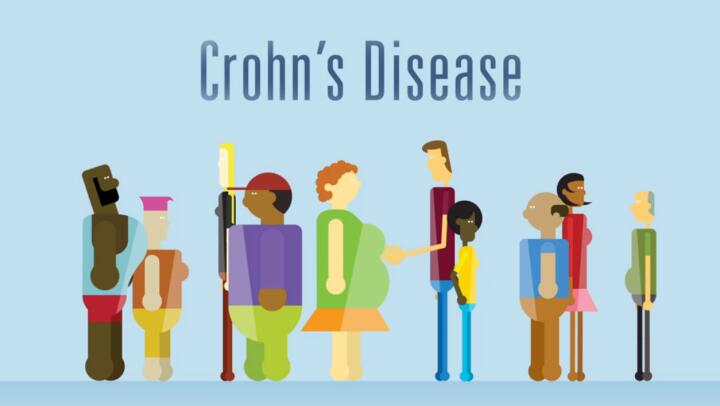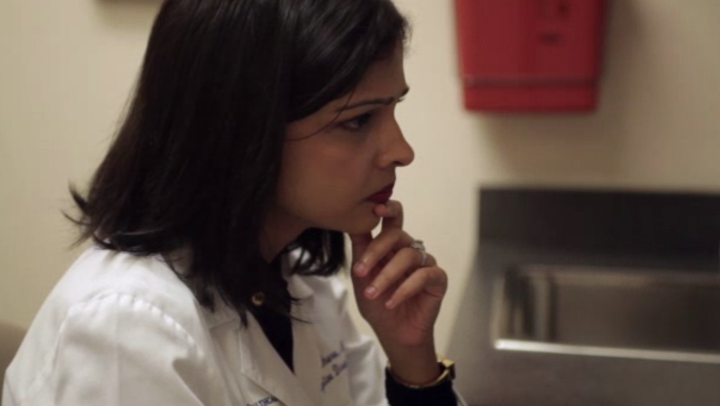What is dysentery?
Dysentery broadly refers to infectious gastrointestinal disorders characterized by inflammation of the intestines, chiefly the colon. The World Health Organization (WHO) defines dysentery as any episode of diarrhea in which blood is present in loose, watery stools.
Dysentery is spread among humans through contaminated food and water. Once a person is infected, the infectious organism lives in the intestines and is passed in the stool of the infected person. With some infections, animals can also be infected and spread the disease to humans.
Common bacterial causes of dysentery in the United States include infections with the bacteria Shigella and some types of Escherichia coli ( E coli). Other less common bacterial causes of bloody diarrhea include Salmonella and Campylobacter infections. Dysentery is associated with environmental conditions where poor sanitation is prevalent. For example, childcare institutions and developing countries have higher rates of Shigella. Amebic dysentery, caused by the parasite Entamoeba histolytica, is most commonly found in tropical areas with crowded living conditions and poor sanitation.
The signs and symptoms of dysentery can last five to seven days or even longer. The course of the illness varies among individuals, as do symptoms. Some people suffering with dysentery have mild symptoms, while others may have severe diarrhea with or without vomiting that can pose a risk of dehydration. Fortunately, dysentery can be treated with antibiotics and antiparasitic medications.
Untreated dysentery can lead to severe dehydration. Severe dehydration and electrolyte imbalances can result in shock or coma and may be life-threatening. Seek immediate medical care (call 911) if you, or someone you are with, have symptoms of severe dehydration such as confusion, lethargy, loss of consciousness, cold skin, or decreased urine output. Seek prompt medical care if you develop diarrhea and vomiting and believe you may have been exposed to contaminated food or water.
What are the symptoms of dysentery?
Dysentery causes irritation and inflammation of the intestines that may result in a number of symptoms. The symptoms can vary in intensity among individuals.
Common symptoms of dysentery
The most common symptoms of dysentery are related to disturbances of the digestive system and include:
Abdominal bloating
Abdominal pain
Bloody diarrhea (may also be watery or with mucus)
Cramping
Nausea with or without vomiting
Other symptoms of dysentery
As the dysentery infection progresses, other symptoms, including symptoms of dehydration, may develop. Other possible symptoms include:
Decreased urine output
Feeling very thirsty
Fever and chills
Muscle weakness (loss of strength)
Weight loss
Serious symptoms that might indicate a life-threatening condition
On rare occasions, dehydration resulting from dysentery may be so severe that a life-threatening situation can develop. Seek immediate medical care (call 911) if you, or someone you are with, have any of the following symptoms:
Change in level of consciousness or alertness, such as passing out or unresponsiveness
Change in mental status or sudden behavior change, such as confusion, delirium, lethargy, hallucinations and delusions
High fever (higher than 101 degrees Fahrenheit)
Rapid heart rate (tachycardia)
Severe abdominal pain
Severe dizziness
What causes dysentery?
The bacteria Shigella and E coli and the amoeba Entamoeba histoly tica are the most common causes of dysentery . These organisms are present in the stool (feces) of infected people and animals. The Entamoeba histolytica may uneventfully reside in the colon, but if it attacks the colon wall, it can cause dysentery. People with weakened immune systems are also more likely to develop amebic dysentery.
Most commonly, dysentery is caused by drinking water or eating food from sources contaminated with feces containing the pathogens. Swimming in contaminated water may also result in dysentery. For this reason, dysentery occurs most frequently in people traveling to developing countries and in children who touch infected human or animal feces without proper hand washing.
Common causes of dysentery include:
Several organisms are known to cause dysentery, most commonly:
- Certain types of
E coli
-
Entamoeba histolytica
-
Salmonella
-
Shigella
What are the risk factors for dysentery?
A number of factors increase the risk of developing dysentery. Not all people with risk factors will get dysentery. Risk factors for dysentery include:
Attendance or work in a day care setting
Close contact with an infected person or animal
Consumption of untreated water from lakes, rivers or streams
Fecal to oral contact
Travel in countries where the infection is common
Use of public swimming pools
Reducing your risk of dysentery
You can lower your risk of developing or transmitting dysentery by:
Avoiding swallowing water in swimming pools, hot tubs, or other recreational water sources
Drinking only purified water when backpacking, camping or hiking
Drinking only purified water when visiting developing countries
Using purified water for brushing your teeth and washing food when visiting developing countries
Washing your hands well with soap and water after touching feces, having contact with an infected person or animal, changing diapers, or using the bathroom, and before eating or preparing food
How is dysentery treated?
Treatment for dysentery begins with seeking medical care from your health care provider. To determine if you have dysentery, your health care provider may ask you to provide stool samples for laboratory testing.
Antibiotic therapy is the mainstay of treatment for dysentery due to bacterial organisms and is highly effective. It is important to follow your treatment plan for dysentery precisely and to take all of the antibiotics as instructed to avoid reinfection or recurrence.
Antibiotics for the treatment of dysentery
Antibiotic medications that are effective in the treatment of dysentery caused by bacterial organisms include:
- Ceftriaxone (Rocephin)
- Ciprofloxacin (Cipro)
- Trimethoprim-sulfamethoxazole (Bactrim, Septra)
The most common treatment for amebic dysentery caused by Entamoeba histolytica is metronidazole (Flagyl), an antiparasitic medication.
If you have diarrhea and vomiting, fluid and electrolyte replenishment is also a component of successful treatment.
What you can do to improve dysentery
In addition to following your health care provider’s instructions and taking all medications as prescribed, you can speed your recovery by:
- Ensuring adequate hydration by drinking plenty of water and electrolyte solutions
- Getting plenty of rest
If you have dysentery, it is important to practice good hygiene to avoid spreading the infection to those who have close contact with you. Wash your hands frequently with soap and water after using the bathroom or touching any contaminated bedding or clothing. Avoid use of public pools, hot tubs, or other recreational water facilities until your infection has cleared.
What are the potential complications of dysentery?
You can help minimize your risk of serious complications by following the treatment plan you and your health care provider design specifically for you. Complications of dysentery include:
- Electrolyte imbalance
- Intestinal obstruction
- Intestinal perforation
- Liver abscess
- Postinfectious arthritis (joint pain, eye irritation, and painful urination)
- Secondary urinary tract infection
- Seizures
- Spread of infection (sepsis, more common in immunocompromised individuals)



























